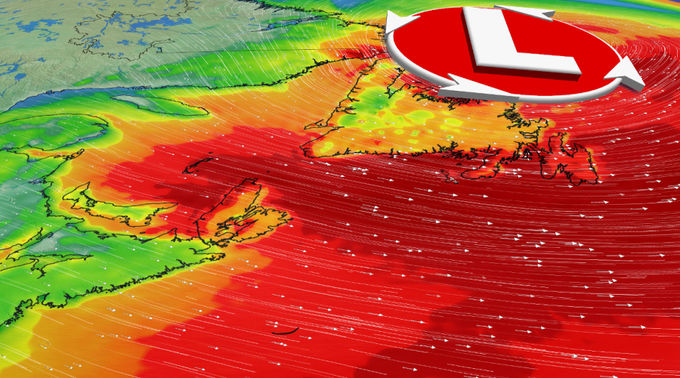Is Extreme Weather Linked to Climate Change?

Forecasters or Alarmists?
You've probably heard your share of hyperbolic terminology used to describe extreme weather systems. It's almost like some weather forecasts are sounding more like fearmongering these days. The latest report to give me that feeling was the weather channels telling of an impending “WEATHER BOMB” coming off the Atlantic to slam into the east coast region. Their headline reads, “Atlantic Canada braces for weather bomb, with ripping winds, heavy snow.” The first thing I thought was, “Wow, I’m sure glad I’m here on the landlocked prairies where the only crazy weather patterns we have to worry about this time of year are blizzards and the odd polar vortex.”
A weather bomb is a system that brings with it a powerful jet stream that packs a punch containing intense winds mixed with heavy precipitation which can be a combination of rain, freezing rain, ice, and snow.
As if the headline isn't powerful enough, they had to punctuate it with a graphic that looks like the harbinger of death is looming on the east coast.

Source: Weather Network
How many other attention-grabbing weather terms to come down the pike over the past 20 years or so that can be classified as alarming if not downright frightening? Let’s see, along with Weather Bomb I’ve heard of the Polar Vortex, Thundersnow, Snowmageddon, Bomb Cyclone, Frostquake, and I’m sure there are others. You may be thinking, “Enough already with the overly dramatic weather terms.” Exactly! Why can’t meteorologists (who by the way, usually know very little about meteors or astronomy in general) stick with the real information? Today it will be windy and snowy. Also known as typical Canadian winter weather.
Has the weather changed over the years? Or is it just the forecasting and describing of it that has evolved? Would you rather hear a humdrum ordinary average forecast or one that sounds like it could be from a movie alerting the townspeople of impending doom? When a major storm system is imminent and you pop on the TV to watch meteorologists do their thing, you get the sense that they're thinking, "It's showtime!" So naturally, you're going to get the full effect of an impactful forecast filled with colourful and attention-grabbing information delivered by a meteorologist motivated by a passion for his or her job. You can really feel it, every time they express the term "Weather Bomb!"
However, before you start thinking this might be just another hyperbolic headline cooked up to create clicks, or something that may have been concocted by a climate change alarmist, think again. There is science behind the terminology and it’s quite fitting. The term “Weather Bomb,” also known as Explosive Cyclogenesis or meteorological bomb, is just that. It has occurred in other regions but is predominantly a maritime winter weather event. It’s an explosive weather development which can rapidly cause an extreme change in atmospheric pressure. This pressure can pack a punch as it creates winds of 120 up to 155 km/h (95 mph). Think in terms of a winter cyclone. The combination of pressure and elements packed behind it are indeed akin to a bomb going off.
We've been enduring extreme weather events more frequently in recent years. Some climatologists will opine these changes in weather and the increasing severity of major weather events are obviously linked to climate change and unfortunately, it is rather difficult to reverse. However, other experts have gone on record saying there've been peaks and valleys all along the timeline throughout history that point to global cooling periods and heating periods and that it is quite natural.
Whether it's fearmongering or weather forecasting when you're describing something as serious as an extreme weather event it probably should grab your attention. After all, wouldn't you rather be prepared or near some shelter when a Weather Bomb goes off?


